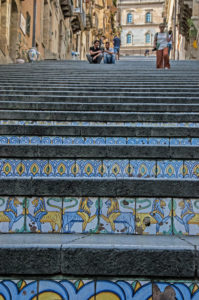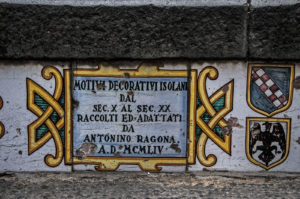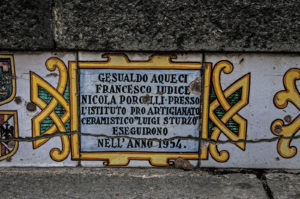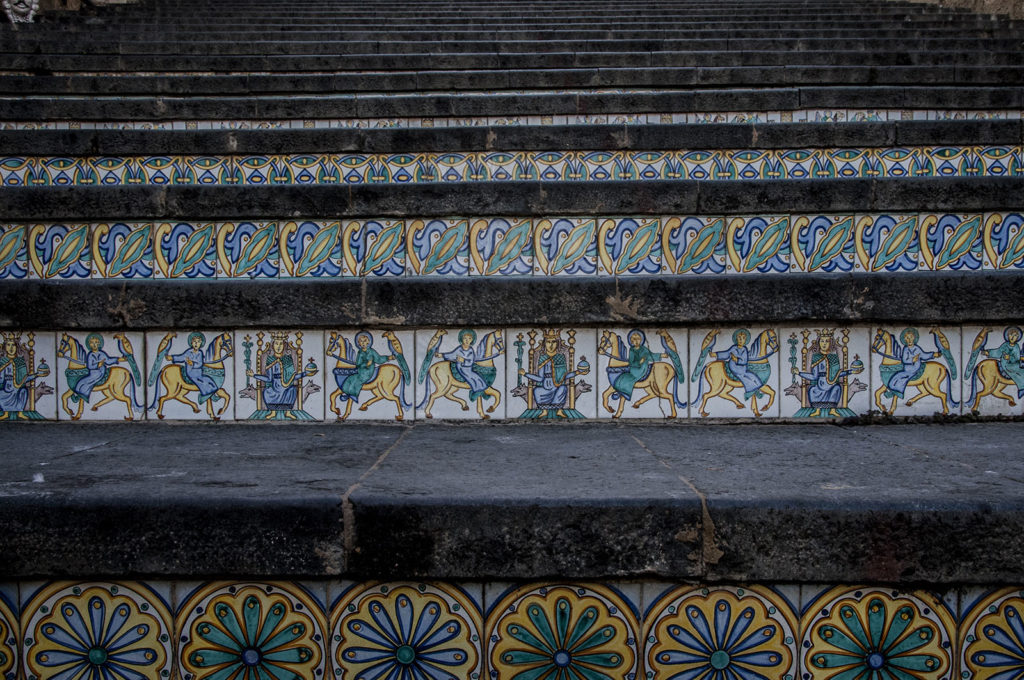
In 1956, the staircase was enriched and embellished with a colourful
maiolica
covering. The idea was to celebrate the thousand-year-old tradition of Sicilian maiolica makers. For this reason, Professor Antonino Ragona, head of the project, chose to reproduce maiolica designs from the 10th-20th century.
The steps were covered from top to bottom. The maiolica tiles were inserted in chronological order, from the earliest century to present day. The first two steps commemorate Antonio Ragona and those who created the decorations (Gesualdo Aqueci, Francesco Ludice and Nicola Porcelli). The other 140 steps are divided into ten sections, one for each century starting from the 10th century. So as you climb the stairs, you are retracing the history of Caltagirone pottery from the antiquity until today.


The maiolica tiles are a triumph of yellow, turquoise and green. One after another, geometrical decorations, human and floral figures alternate and portray the characteristic maiolica styles of Arabic, Norman, Suevian, Angevin-Aragonese, Chiaramontano, Spanish, Renaissance, Baroque, 18th century, 19th century and contemporary production.
